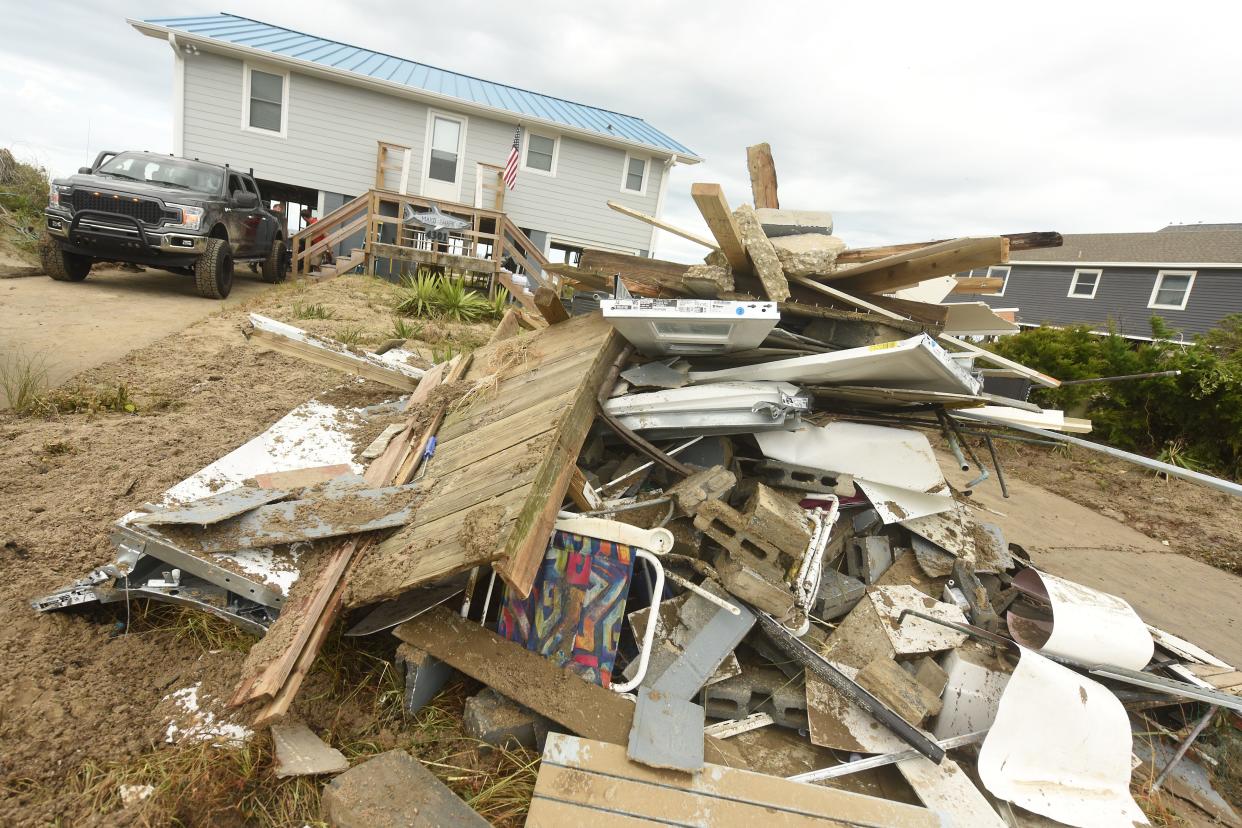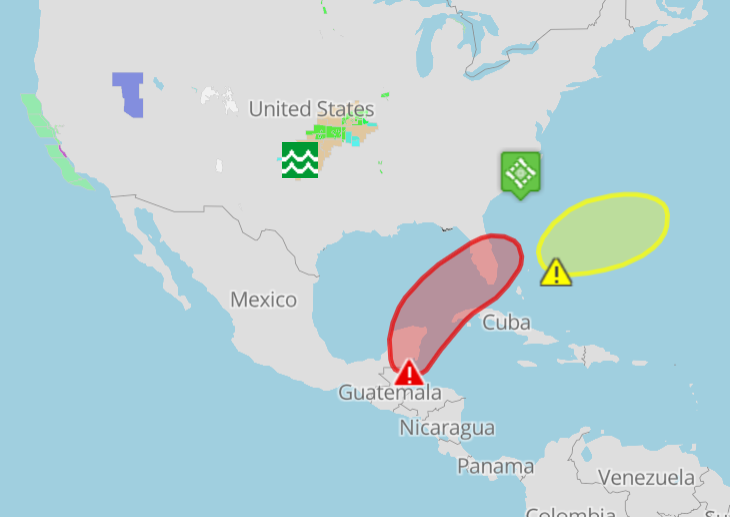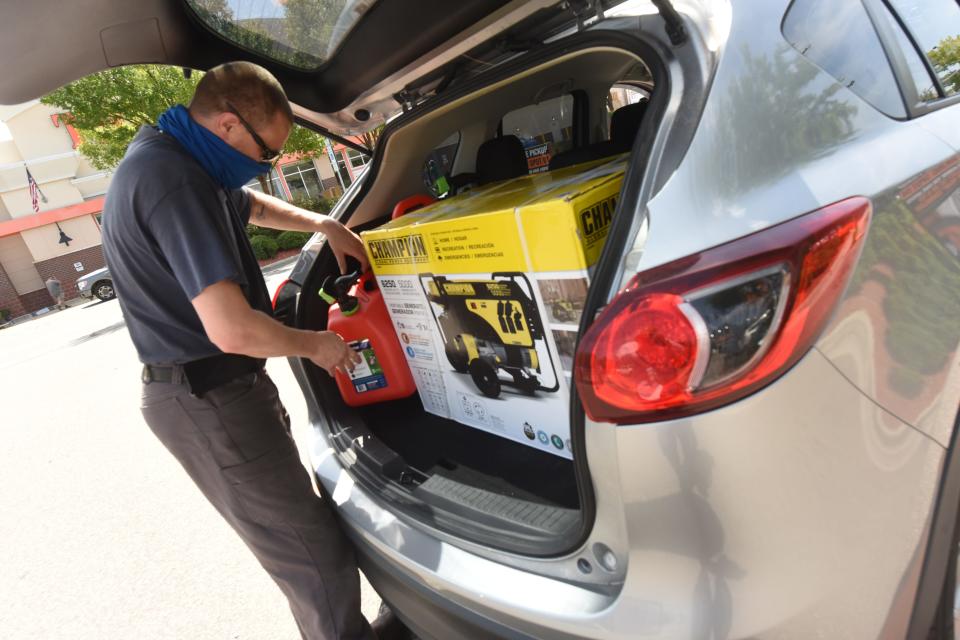Cape Fear Red Cross works to rebuild volunteer pool, anticipates rough hurricane season

Anticipating an above-average hurricane season that could bring damaging storms to the region, the American Red Cross of the Cape Fear Area is working to ensure its volunteer workforce is ready for the challenge.
Hurricane season, which runs June 1 through Nov. 30, is a busy time for the Red Cross as its workforce – 90% of which is volunteers – balances providing support for victims of home fires and other everyday disasters, as well as disaster relief following tornadoes, hurricanes and flooding that threaten the Cape Fear during the summer and fall months.
James Jarvis, executive director of the American Red Cross of the Cape Fear Area, said the organization is still feeling the effects of the COVID-19 pandemic and working to recruit volunteers.
Hurricane news: Could it take a hurricane to pull Eastern NC out of its stubborn drought?
"The main thing we're looking at is how can we rebuild our volunteer workforce coming out of the pandemic," Jarvis said.
In 2020 and 2021, he said, the organization lost volunteers as many were older and had concerns about in-person volunteer opportunities. The Red Cross continued providing services through the pandemic, Jarvis said, but in-person volunteer opportunities were limited as health concerns grew, so some took their time and skills elsewhere.
First responders: Here's how local first responders hope to save lives across the area and state
Jarvis said the Red Cross is also experiencing burnout among its volunteers who, along with the rest of the country, have been in disaster-mode through the pandemic.
“When you are coming out of a pandemic and moving into a hurricane season, it is stressful,” Jarvis said. “There’s only so much that people can take, but our volunteers have been very resilient.”
As the 2022 hurricane season begins, Jarvis said the Red Cross is working to welcome back existing volunteers, determine how many they lost to the pandemic, and recruit and train newcomers.
“We live in a very giving community, so oftentimes you’ll see neighbors wanting to help neighbors in the event of a disaster,” he said. “What we would ask them to do is get trained in advance so that way, if we are hit with a disaster, you can jump right in and start helping right away.”
While there’s no specific number of bodies in mind, Jarvis said the Red Cross is “making sure that we have the volunteer workforce that we will need should we find ourselves faced with another hurricane — or hurricanes — this year.”
How many storms could there be this hurricane season?
Mike Colby, lead meteorologist with the National Weather Service in Wilmington, said the 2022 hurricane season is expected to bring an “above-average” number of storms.
Colby said the official forecast calls for 14 to 21 tropical storms this year. Of those, he said, six to 10 are expected to be hurricanes, and of those hurricanes, three to six of them are forecast to become major hurricanes (Category 3 or higher).
2021 hurricane season: Hurricane seasons are getting worse
“The major ones are the ones that do damage,” Colby said. “If it’s a [Category] 3 or higher, generally it’s best to evacuate in the major hurricanes, so that’s one way to prepare is just to get out.”

This season is expected to be comparable to 2021, but worse than past years. Last year brought 21 named storms, Colby said.
Peak hurricane season, on average, falls in early September, he said.
Have a kit, make a plan, stay informed
One of the most dangerous things that can accompany hurricane season is apathy, Jarvis said.
For residents who may have lived through several hurricanes in the past, assuming the upcoming storms will be just like past ones and not evacuating when necessary could prove fatal.
“It only takes one storm to cause significant damage to your home or your life,” Jarvis said.
Jarvis said the Red Cross encourages residents to prepare in advance by having a hurricane kit, making a plan and staying informed.

Having an emergency kit stocked with batteries, drinking water, cash, a flashlight, candles, a lighter, non-perishable food, a generator, toilet paper, first aid kit and medicines on hand is vital, Jarvis said.
Stocking up: 11 things Wilmington-area residents need this hurricane season
Colby added that filling up bathtubs or buckets with water to use to flush toilets without power and having a chainsaw handy to clear fallen trees that may be blocking roads could be helpful.
Evacuation plans that include multiple routes and hotels along the way are also key to keep in a kit.
Colby said when deciding to evacuate the area, it’s best to do so earlier rather than later, as flood waters and traffic may accrue on roadways.
“The longer you wait, it gets more dangerous,” Colby said. “At some point, it’s better to hunker down if you haven’t left already.”
Jarvis said the Red Cross is continuing to follow local, state and federal guidance to avoid COVID-19 in its shelters. When evacuating, be sure to bring face masks and be prepared to follow social distancing and mitigation measures in shelters.
Talking to kids in an age-appropriate way about the impending dangers of tropical storms is vital, Jarvis said. These events and the stress of evacuating their homes can be confusing and scary for young people. The Red Cross provides youth training resources to ensure children understand what’s happening, how to express the emotions they may feel and how they can help in times of crisis.
Having a plan to stay informed in the aftermath of a hurricane is important to understanding when it will be safe to return home, Jarvis said.
Related hurricane news: What are the 5 worst hurricanes to ever hit the Wilmington area?
Colby said it’s important to remain cautious in the days and weeks following a storm, as tree branches may have broken but not fallen, downed power lines may be active and roofs may be dangerous. Once electricity is restored, Jarvis said, the risk of home fires is also something to keep in mind.
To find out about Red Cross volunteer opportunities and trainings, visit redcross.org/volunteer. To set up a free youth training event, contact a local chapter office near you.
Jamey Cross is the public safety reporter at the StarNews. Reach her at jbcross@gannett.com or message her on Twitter @jameybcross.
This article originally appeared on Wilmington StarNews: Cape Fear Red Cross looks to recruit volunteers amid hurricane season

